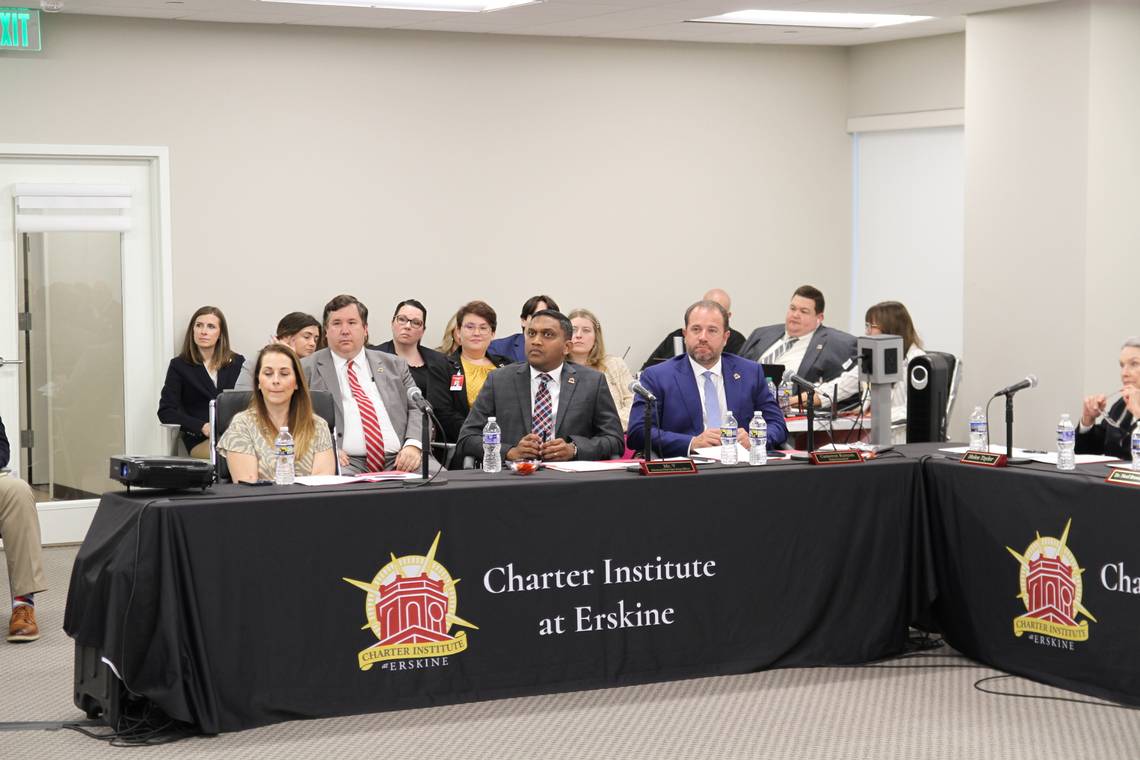State lawmakers are demanding accountability from South Carolina’s largest charter school district in light of concerns about its management, operations and spending of taxpayer dollars.
Bipartisan groups of lawmakers from both chambers this week asked state authorities to conduct audits of the Charter Institute at Erskine, a taxpayer-funded affiliate of Erskine College that oversees more than two dozen of the state’s charter schools, to determine whether its leaders have mishandled state funds or violated the law.
“We are in receipt of information about and allegations against (the Charter Institute at Erskine) which, if true, indicate a culture of mismanagement, waste, fraud and abuse at the agency,” reads a letter signed by five state senators and sent to the governor’s office Tuesday requesting the inspector general investigate. “It is of critical importance that public funds be guarded, particularly any appropriated for the benefit of our state’s most precious resource, its children.”
A separate letter, signed by six House members, including House Education Chair Shannon Erickson, R-Beaufort, asked the Legislative Audit Council, which conducts independent audits of state agencies, to investigate claims that the Charter Institute had entered into improper financial relationships with for-profit management companies that operate many of the schools it oversees.
“We are concerned that if transactions such as these have occurred, they may compromise the ability of Erskine to perform its duties under the Act with fidelity and/or may cause Erskine to apply inconsistent standards of accountability to different charter schools that it sponsors,” the letter reads.
The Charter Institute at Erskine did not immediately respond to a request for comment on the requested probes. Its CEO and Superintendent Cameron Runyan has repeatedly denied any wrongdoing.
Multiple lawmakers said their appeal for an investigation was directly informed by The State Media Co.’s “Unchartered Territory” series, which revealed several actions taken by Charter Institute leaders that raise ethical concerns, including their involvement in a plan to open three schools in Tennessee and their funding of a related nonprofit that provides fee-based services to Charter Institute schools.
State Sen. Brad Hutto, D-Orangeburg, one of five senators who signed onto the inspector general audit request, said he supports the probe in order to get a clearer picture of the Charter Institute’s finances and business entanglements.
“We just want to make sure that proper oversight is given to the charter school system and that this is not some big ploy to funnel business to people on their boards and that kind of thing,” he said.
In recent months, state lawmakers in both chambers have expressed concerns about the Charter Institute’s spending and compliance with South Carolina’s charter schools law.
Both the House and Senate have added one-year measures to the state budget, known as provisos, that are intended to address some of those concerns.
But lawmakers acknowledge that more needs to be done to shore up the decades-old Charter Schools Act, which does not address many of the complex issues that have emerged since colleges and universities were allowed to approve and regulate charter schools.
“These are areas the law is silent,” Erickson told The State earlier this year. “When we had this conception of how this works, it never entered our minds that we would need to have these particular safeguards in place.”
The issue came to a head on the Senate floor several weeks ago when Sen. Nikki Setzler, D-Lexington, proposed an amendment to cap the amount of taxpayer money college and university authorizers can retain for oversight of the schools they oversee.
“This is a first step for the people of South Carolina,” said Setzler, who is retiring at the end of the year. “I’ll be gone, but I hope some of you will pick up this mantle and follow through and work on and understand and go to the trouble to dig into what is going on.”
Setzler, who sponsored the state’s 1996 charter schools law, spent about 30 minutes at the well that day sharing his growing concerns about charter school authorizer accountability and imploring his colleagues to seriously consider reforming the law when they return to Columbia next year.
“I hope that this Senate will pursue this issue in the next legislative session,” he told his colleagues. “And in the off-session, maybe have a task force to look at it and ask those probing questions.”
By the time Setzler finished, more than a half-dozen senators, including Senate Education Chair Greg Hembree, R-Horry, had signed on as cosponsors of his amendment.
Hutto said Wednesday that he and the other senators who requested an inspector general audit of the Charter Institute aim to ensure that Setzler’s wishes are carried out.
“Sen. Setzler doesn’t chase red herrings,” he said. “If he’s getting the whiff of something that might be amiss, that’s important to us and we’re going to follow up on it.”
